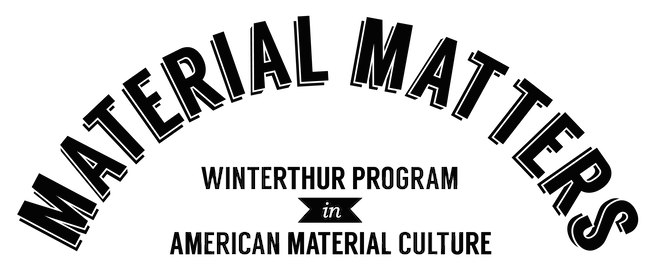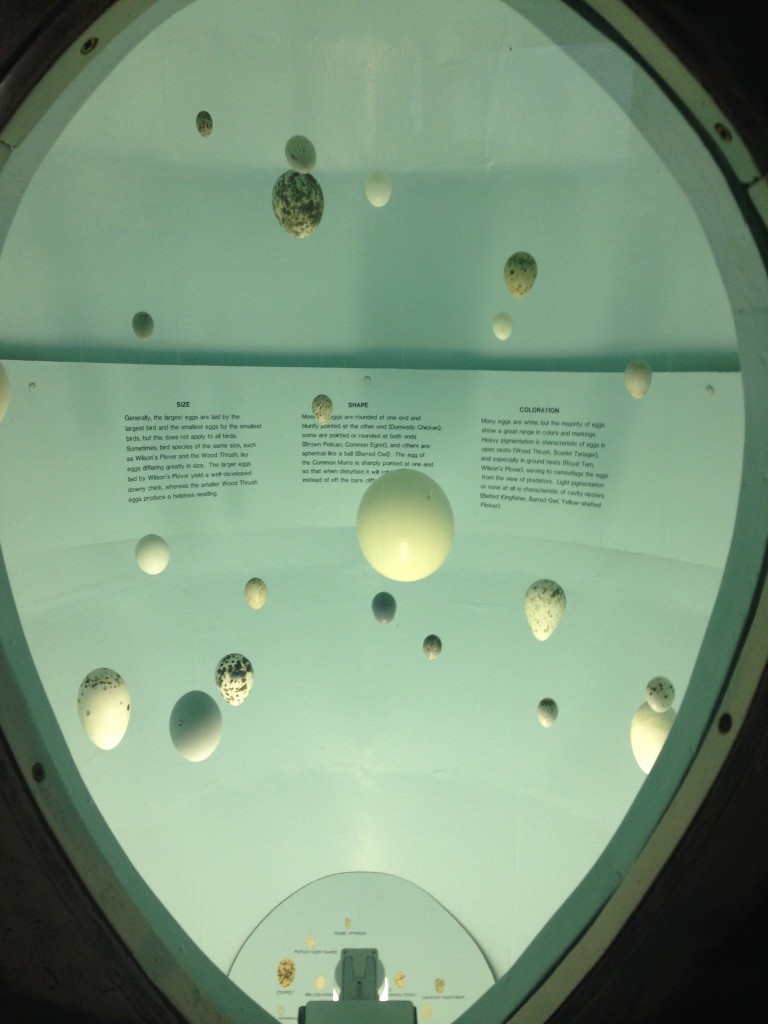An Eggemplary Display
I’ve never been one to fawn over natural history displays, so it was with a rather apathetic stare that I wandered through the Natural History wing of The Charleston Museum yolked to my tour group. Then, out of nowhere, came one of the most strange and delightful displays I’ve ever encountered: an egg displaying eggs!
After a hall of taxidermy in rectangular cases sits this most unangular display. It’s quite a large egg, as eggs go, and within it are displayed twenty-four more eggs, suspended magically by barely visible threads inside the eggshell.
The case is fully independent, sitting on a black box. A cord running from the egg to an electrical socket tethers the display to its corner of the museum. An egg shaped window allows children and adults to peer into the glowing interior, and one gets the feeling that many heads before mine had smacked the window glass peering in curiosity at the glowing contents.
What I liked about the egg was its blatant honesty: one should look into the egg if one desires to know more about eggs. There was no gimmick, no greater curatorial theme. Its form (egg) followed its function (eggucation) to an absurd end.
The architects Robert Venturi and Denise Scott Brown introduced the term “Duck” to describe architecture that mimicked its product or service; the egg display perfectly embodies this concept at a smaller scale. In my own hometown of Marietta, Georgia, our local landmark is an architectural duck, the Big Chicken (1963) serving fried chicken.
The Charleston Museum’s blank, late Modernist building (1979) is anything but a Duck, it’s just a box. I appreciated the egg even more in contrast to the rather formal exterior. If they wanted to, the museum could really run with the egg-look: this Duck of a museum in Ukraine provides another eggcellent eggample of architeggtonic design.
The Museum is soon to embark on renovations to the Natural History wing of the museum, but I was assured by our guide and Chief Curator of the Museum Grahame Long that the egg will remain as part of the spruced up exhibit. I was glad to hear it, I just hope they don’t “update” the egg in any way. It is perfect; it cracks me up.
By Kevin Adkisson, WPAMC class of 2016








Leave a Reply